By Pablo de Ronda
Which languages have the most speakers? It comes as no surprise that English reigns supreme, with over 1.1 billion total speakers—or roughly 15% of the global population. Mandarin Chinese, Hindi, Spanish, and French round out the top five.
However, the most widely spoken language in the world in terms of the number of native speakers, is Spanish, not always castellano, to be fair, with some 485,063,960 speakers. Around 379,682,200 people have some form of English as their mother tongue.
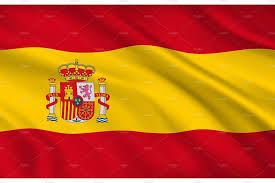
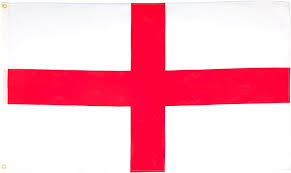
So, with mastery of these two languages you can more than get by in most parts of the world.
Background
Why is this the case?
 Historically, from the 15th century onwards, Spain and England were the most successful conquistadores, colonists and explorers, followed by Portugal, France, Belgium and the Netherlands. And they all took their national languages with them and imposed them on the natives of the countries they colonised.
Historically, from the 15th century onwards, Spain and England were the most successful conquistadores, colonists and explorers, followed by Portugal, France, Belgium and the Netherlands. And they all took their national languages with them and imposed them on the natives of the countries they colonised.
After most of these countries gained independence, the “foreign”, ie non-native tongue, survived, at least as the language of politics, administration and commerce.
Christopher Columbus discovers America in 1492
India is a good case in point (English); as is South Africa (Afrikaans, a form of Dutch), Brazil (Portuguese) and most of the rest of South and Central America and the Caribbean (Spanish). Curiously, when the Philippines went independent from Spain in 1898, the populace rejected Spanish and reverted to the native tongue, Tagalog.
Important European politicians and officials and the English language
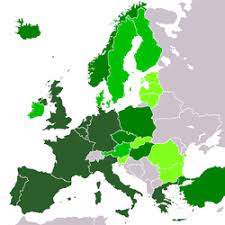 Although the 27 member states of the European Union speak a range of different national and regional languages, their politicians (MEPs) have access to translations of all official documents and may make speeches in their mother tongue, which are simultaneously interpreted by a team of high-quality translators and interpreters. In practice the main language of Europe is English.
Although the 27 member states of the European Union speak a range of different national and regional languages, their politicians (MEPs) have access to translations of all official documents and may make speeches in their mother tongue, which are simultaneously interpreted by a team of high-quality translators and interpreters. In practice the main language of Europe is English.
So, how good at English are foreign heads of government (prime ministers, presidents, chancellors, etc)?
Traditionally Scandinavian leaders have had the best English. Germany too. Newer members from Eastern Europe tend to have leaders who are more than competent in English, yet the French, Italian and Spanish leaders, until recently, have been the most stubborn and obdurate, when it comes to the use of English.
Spain since Franco, France and elsewhere
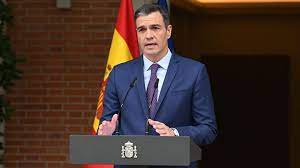 Of the seven prime ministers/presidents of Spain since the death of Franco and the return to democracy, only one, the current presidente del gobierno, Pedro Sanchez, has demonstrated good skills in English. Former president José María Aznar speaks English these days, but he only started to learn English when he left office.
Of the seven prime ministers/presidents of Spain since the death of Franco and the return to democracy, only one, the current presidente del gobierno, Pedro Sanchez, has demonstrated good skills in English. Former president José María Aznar speaks English these days, but he only started to learn English when he left office.
The president of France, Emmanuel Macron, is the only French leader I can recall who speaks/spoke good English.
Spanish prime minister Pedro Sanchez
Top officials also have good English nowadays, eg Ursula von der Leyen (German - President of the European Commission ); Charles Michel (Belgian - President of the European Council): Jens Stoltenberg (Norwegian - NATO secretary general), and European Central Bank boss Christine Lagarde (French).
***
To hear how good at English some of these people are, click here:
European summit live: We're resetting our approach to illegal migration, Keir Starmer says at European leaders’ summit - BBC News
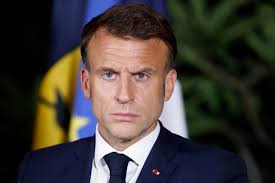
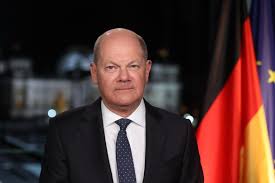
French president Emmanuelle Macron German chancellor Olaf Scholz
Personal Note
I studied for a joint honours degree in Spanish and German, graduating in 1973. I taught languages in three state schools in the Northwest of England, in Cheshire, Greater Manchester and Merseyside for 15 years, before becoming a schools adviser/inspector in Merseyside (St Helens and Sefton Councils) for a further 15.
I have lived in Spain for more than 15 years, where I have worked as a Spanish tutor, translator and interpreter. I am a sometime corredor (independent real estate agent) and property developer.
I am fluent in Spanish, so much so that I was happy to be interviewed twice for Spanish TV, during the Covid-19 lockdown and afterwards.
La Serranía de Ronda, un rincón con encanto para quedarse (youtube.com)
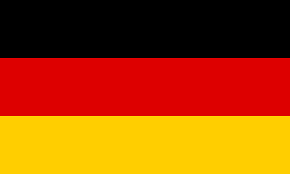 I am also fluent in German, since I have been married to a German lady I met here in Spain for the last 14 years. We only speak German at home.
I am also fluent in German, since I have been married to a German lady I met here in Spain for the last 14 years. We only speak German at home.
I have travelled widely in Europe and have visited the USA and Australia. The only places where I felt uncomfortable linguistically were Greece and the Soviet Union.
Conclusion
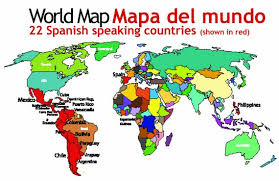 To return to my earlier premise, that you can get by nearly everywhere in the world with Spanish and English, I think this is largely true.
To return to my earlier premise, that you can get by nearly everywhere in the world with Spanish and English, I think this is largely true.
In addition German is useful in Eastern Europe, as it was the first foreign language taught in schools in many Soviet satellite states from 1917 onwards.
French is useful in, well, France….. (only joking!)
French is also good in parts of Belgium and Switzerland, southern Morocco, some other former French and Belgian colonies in Africa eg Mozambique, some islands in the Indian Ocean, eg Reunion, and in French Guinea (South America), and the Caribbean islands of Guadeloupe, Haiti, Martinique, Saint Barthelemy, and Saint Martin.
Epilogue
So, with English, Spanish, German and my rusty French (studied to A-level) I can get by pretty much everywhere. The exceptions, as before, are Greece and Russia, but as I have no current plans to go to either country, that’s OK.
Other countries where I wouldn’t have a clue linguistically include China, Korea and large parts of Indonesia, but I’m not going there either.
The only country which is a longish flight away that is on my “Wish List” is Cuba. But that’s OK – they speak Spanish there!
¡Adiós and goodbye!
© Pablo de Ronda
Links:
European summit live: We're resetting our approach to illegal migration, Keir Starmer says at European leaders’ summit - BBC News
Help me, Ronda - HELP ME RONDA (help-me-ronda.com)
La Serranía de Ronda, un rincón con encanto para quedarse (youtube.com)
properties FOR SALE - A1 INMOBILIARIA - Real Estate (a1-inmobiliaria-real-estate.com)
(28) Paul Whitelock | LinkedIn
Acknowledgements (Photos):
Amazon
Diario Critico
El Correo
El Mundo
Genially
Tags:
Afrikaans, Amazon, Asia, Australia, Belgian colonies in Africa, Belgium, Brazil, Caribbean, castellano, Central America, Charles Michel, China, Christine Lagarde, colonists, conquistadores, Cuba, Diario Critico, Dutch, Eastern Europe, El Correo, El Mundo, Emmanuelle Macron, English, explorers, France, Franco, French, French Guinea, Genially, German, Germany, Guadeloupe, Haiti, Hindi, India, Indian Ocean, Indonesia, Jens Stoltenberg, José María Aznar, Korea, Mandarin Chinese, Martinique, Morocco, Mozambique, Netherlands, Olaf Scholz, Pablo de Ronda, Paul Whitelock, Pedro Sanchez, Philippines, Portugal, Portuguese, Reunion, Russia, Saint Barthelemy, Saint Martin, South Africa, South America, Soviet satellite states, Soviet Union, Spanish, Switzerland, Tagalog, USA, Ursula von der Leyen